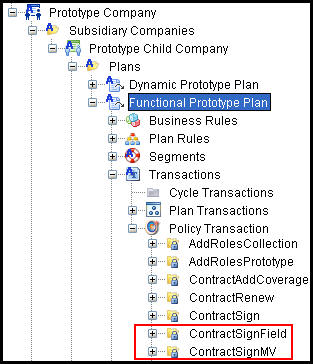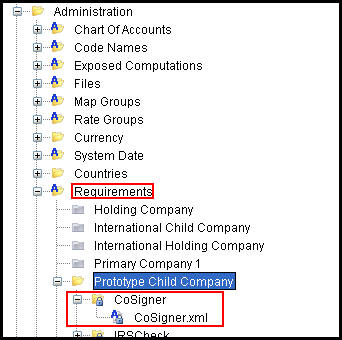Update Requirement Activity Date
The DeliveryRequirements business rule was enhanced to support a NEWACTIVITYDATE attribute that will specify the Effective Date an activity should use once all requirements are satisfied. The new attribute accepts configured date values from a field or math variable and then sets the activity's Effective Date to the New Activity Date when all the requirements are satisfied. If this attribute is not used then the DeliveryRequirements rule will set the activity's Effective Date to the latest of the non-cancelled individual requirement's CloseDate, when PROCESSONCOMPLETE is set to Yes in the configuration.
Note: The attribute will only accept date values that are greater than or equal to the activity's current effective date.
Scenario for Prototype
A transaction is configured to generate a requirement through the use of the attached GeneratePendingRequirements business rule. The rule will add a requirement to the policy. When the transaction processes, a requirement icon will appear, alerting the user that a requirement needs to be met. Once the requirement is satisfied, the activity will process. The date displayed on the Activity screen is the date defined in the DeliveryRequirements business rule.
Configuration Requirements
There are three business rules that need to be configured:
-
ActivityRequirementScreen: the global rule should exist, but does not need to be configured. This rule may be overridden at the company level and may also be overridden at the transaction level. This rule does not need to contain configuration, as the fixed fields are defined by base Java code.
-
DeliveryRequirements: this rule should be overridden at the transaction level and listed in the TransactionBusinessRulePacket.
-
GeneratePendingRequirements: this rule should be attached to a transaction and listed in TransactionBusinessRulePacket before DeliveryRequirements.
Two transactions are configured to demonstrate both the field and math variable options to the NewActivityDate attribute.
Prototype Samples
Two new transactions were configured:
-
ContractSignField: tests a transaction that passes a field name to the "NewActivityDate" attribute. Navigate to Main Explorer and open Companies | Prototype Company | Subsidiary Companies | Prototype Child Company | Plans | Functional Prototype Plan | Transactions | Policy Transactions.
-
ContractSignMV: tests a transaction that passes a math variable name to the "NewActivityDate" attribute. Navigate to Main Explorer and open Companies | Prototype Company | Subsidiary Companies | Prototype Child Company | Plans | Functional Prototype Plan | Transactions | Policy Transactions.

Transactions that Demonstrate New Requirement Attribute
-
There is one requirement definition that is used to demonstrate requirement processing. This definition is referenced from the transaction and represents a requirement that must be filled. The criteria are listed below. Navigate to Admin Explorer and open Administration | Requirements | Prototype Child Company to see the requirement definitions.
-
CoSign: this requirement needs all three criteria to be met:
-
Date: The activity's Effective Date must be less than March 1, 2010.
-
Checkbox: The CoSign requirement will generate if the ContractSign activity's CoSign Checkbox is unchecked.
-
PlanGUID: PlanGuid must match the PlanGUID of the Functional Prototype Plan. This criterion should always be met when processing an activity in the Functional Prototype Plan.

Requirement Definition in Admin Explorer
-
Two business rules were used to demonstrate requirements processing. Navigate in the Global Rules Explorer to Business Rules | Attached. Open the folder for each rule and then open the Transaction Overrides folder.
-
GeneratePendingRequirements: This rule will be attached to the transaction generating requirements. In Contract Sign it will define the conditions under which the CoSign requirement is created. This rule will actually generate the requirement.
-
DeliveryRequirements: This rule will be attached to Contract Sign. It will define whether the Effective Date is updated when the requirements are satisfied.
Copyright © 2009, 2014, Oracle and/or its affiliates. All rights reserved. Legal Notices